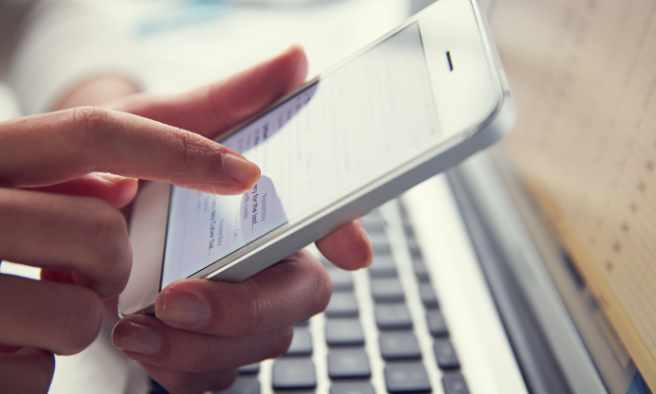If you’re in the market for a new credit card but don’t have any credit history, don’t worry – there are plenty of easy ways to build your credit history.
You can start by checking your credit score and finding out what factors are holding you back. From there, you can work on improving your credit score by following some simple steps.
And once you’ve done that, it’s time to apply for a credit card that matches your needs.
So whether you’re looking for a secured or unsecured credit card, here are ten tips to help you build your credit history.

1. Get a secured credit card to start building your credit history
A secured credit card can be a great tool for building your credit history. Unlike a traditional credit card, a secured card requires you to put down a security deposit, which acts as your credit limit.
This deposit is held by the issuer as collateral in case you default on your payments. To get started, simply find a secured card that fits your needs and apply.
Once you are approved, you will need to make your initial deposit and activate your account. Then you can start using your card like any other credit card, making sure to make your payments on time and keep your balance low.
By following these simple steps, you can begin to build a strong credit history that will benefit you for years to come.
2. Use that secured credit card for small purchases and pay off the balance each month
A secured credit card is a great way to build your credit. You can use it for small purchases and then pay off the balance each month.
This will help you show that you’re a responsible borrower and improve your credit score. Just make sure you don’t spend more than you can afford to repay, and always pay your bill on time.
With a little discipline, a secured credit card can help you get on the path to a bright financial future.

3. Make sure you keep track of your credit score and credit utilization ratio
A good credit score is important for many reasons. It can help you qualify for loans, get better interest rates, and even rent an apartment.
That’s why it’s important to keep track of your credit score and make sure it stays in good shape. There are a few key things you can do to improve your credit score.
First, make sure you pay all of your bills on time. This includes both credit card bills and other bills like utilities or rent.
Read Next: The Best Benefits of Buying a Used Car
Second, keep your credit utilization ratio low. This means that you’re using only a small portion of your available credit. By following these two steps, you can help ensure that your credit score stays high.
4. Consider a co-signer if you need to take out a loan
If you’re having trouble getting approved for a loan, you may want to consider finding a co-signer. A co-signer is someone who agrees to sign the loan with you and is legally responsible for repaying the debt if you can’t.
This can be a great way to get approved for a loan when you wouldn’t otherwise be able to, but it’s important to understand that a co-signer is taking on a big responsibility.
If you default on the loan, the lender will seek payment from your co-signer and it could damage their credit. So if you do choose to use a co-signer, be sure that you’re confident in your ability to repay the debt.

5. Keep an eye on your credit report for any errors or fraudulent activity
Your credit report is a vital piece of your financial puzzle. Order a copy of your credit report from all three credit reporting agencies: Experian, Equifax, and Transunion.
This will help you keep an eye on your credit and make sure that all the information is accurate. You’re entitled to one free copy of your report from each of the three major credit reporting agencies every year.
To order yours, visit AnnualCreditReport.com or call 1-877-322-8228. Reviewing your report regularly can also help you catch signs of identity theft early on, so you can take steps to resolve the issue before it does serious damage to your credit history.
6. Use a credit builder loan to build credit when you have no credit
No credit can make it difficult to do things like rent an apartment or get a cell phone plan. A credit builder loan can help you build credit when you have no credit.
This type of loan is typically a small amount of money, and you make payments over time. The payments are reported to the credit bureaus, which can help build your credit score.
A higher credit score can help you qualify for better interest rates on loans in the future. If you’re looking to build your credit, a credit builder loan may be a good option for you.
Read Next: 10 Simple Things Stay At Home Moms Can Do To Improve Your Finances Today
7. Become an authorized user on someone else’s credit card
Having no credit can feel like a catch-22: you need credit to build credit, but it can be hard to get approved for credit products when you have no credit history. One way to get around this is to become an authorized user on someone else’s credit card.
As an authorized user, you will have your own card with your name on it, and the account will appear on your credit report. The primary cardholder will be responsible for making payments, but as long as they make their payments on time and keep the account in good standing, your credit will benefit.
Becoming an authorized user is a great way to build credit when you have no credit history of your own. Just make sure to choose a primary cardholder who is reliable and has good credit habits.
8. Pay your bills on time to build your credit
One of the best ways to begin building credit is to make sure you pay your bills on time. This includes any type of bill, such as utility bills, credit card bills, loan payments, etc.
Payment history is one of the biggest factors that goes into calculating your credit score, so it’s important to establish a good track record from the start.
If you have no credit history, then paying your bills on time is one of the best ways to start building a solid foundation.
Additionally, you should try to keep your balances low and avoid opening too many lines of credit at once. By following these simple tips, you can begin to establish a good credit history that will benefit you for years to come.
9. Keep your credit utilization low to build credit when you have no credit
Your credit utilization is the amount of revolving credit you have used divided by your total credit limit. For example, if you have a $1,000 credit limit and you’ve used $500 of that credit, your credit utilization would be 50%.
Ideally, you want to keep your credit utilization below 30% to maintain a good credit score. If you have no credit, you can still build credit by keeping your credit utilization low.
This shows lenders that you’re responsibly using the credit they extend to you and helps you build a strong credit history. You can also build credit by making on-time payments and keeping your balances low.
By following these simple steps, you can start building a good credit history that will help you qualify for the loans and lines of credit you need in the future.
10. Don’t open too many accounts at once to build credit when you have no credit
Establishing credit is important if you want to buy a car or a house, or even if you just want a good interest rate on a credit card. But opening too many credit accounts in a short period of time can actually damage your credit score.
Each time you apply for credit, the lender will do a hard inquiry on your report, which can ding your score by a few points. And if you open several accounts in a short period of time, it can signal to lenders that you’re desperate for credit, which can make them wary of giving you more.
So when you’re just starting out, it’s best to open one or two accounts and use them responsibly. That way, you’ll be on your way to establishing a good credit history – and a good credit score.
If you have no credit history, it can be difficult to build your credit score. However, there are a few things you can do to improve your chances of getting approved for a loan or line of credit. We’ve outlined some tips for building credit without a credit history below.

Erika Finn, founder of Credit Help, is an attorney who graduated from law school (JD) at University of California, Berkeley and is a member of the California Bar Association. She was a member and editor of the California Law Review and won the Prosser Prize for Legal Accounting. She holds a Master’s Degree (MFA) from the University of Southern California (USC) and a Bachelor’s degree (BA) from Indiana University- Bloomington with highest distinction.
Credit Help believes that everyone should have access to helpful, free information about how to raise their credit rating.
Articles on Credit Help are not legal advice or financial advice.